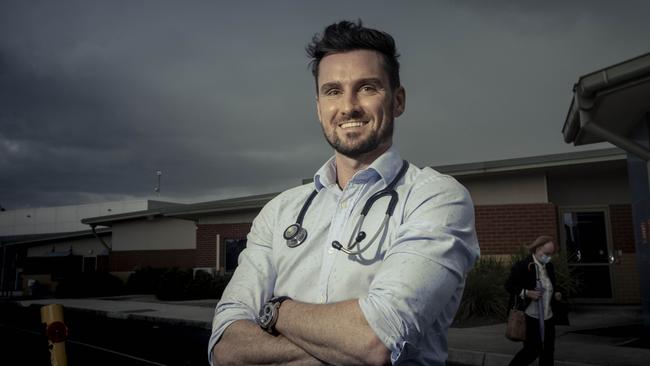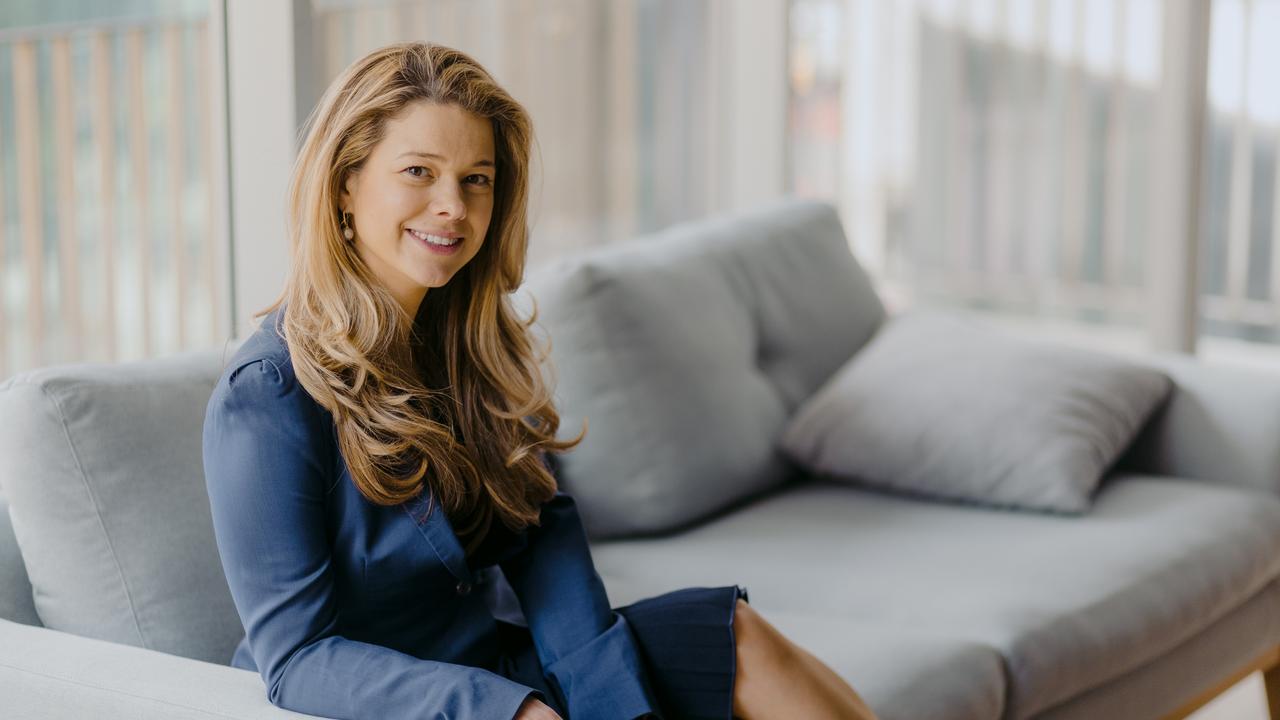This consultant had a Covid-led conversion
BCA’s Biggies Awards finalist: Simon Doyle, medical doctor and former consultant at EY, showed “immense courage and selflessness” going straight to the COVID frontline in Melbourne.

The Business Council of Australia’s Biggies Awards finalist: Simon Doyle, medical doctor and former consultant at EY, showed “immense courage and selflessness” going straight to the COVID frontline in Melbourne.
-
It was a huge achievement to suppress a second, potentially deadly, wave of COVID-19 in Victoria last year, but it has likely changed the way health professionals interact with patients in future, according to emergency doctor Simon Doyle.
“I hope all of those soft skills have started to come back. I think we’ve become more used to being able to use them, even with those PPE barriers,” says the 31-year-old.
“Before COVID, PPE (personal protective equipment) was very different as a concept in my mind. It was never the full gown, N95 visors and all those kind of things and I think that will stay with us now.
“Hopefully we will be able to get back to some kind of normality with regards to how we interact with each other and patients during those times.”
Doyle — originally from Liverpool in the UK — was an emergency room doctor at the Northern Hospital until 2018, but swapped his scrubs for a role in health management consulting at professional services firm, EY.
When the pandemic struck, he felt compelled to take up the firm’s offer of a three-month sabbatical and return to the frontline.
He spent from May to July working in the St Vincent’s Hospital ER and one of Melbourne’s busiest COVID clinics.
“Lots of my friends and family are in the UK and in Europe, and things were starting to escalate over there,” he says.
“There was a feeling that that was going to happen here … and I think if that had happened, I would have felt that I wanted to be involved in some way to try and help.”
Doyle says one of the issues he confronted was the need to adapt to the crisis.
“(What) I found most difficult was all the ways we had to change how we work. It wasn’t new for me to see a patient who was acutely unwell, very short of breath needing to be in a (resuscitation) situation.” But because the emphasis was on trying to contain coronavirus, the usual emergency protocols had to be changed.
“We weren’t able to use certain masks for giving oxygen, we had to take our time to put on the full PPE before we went in. We were even limiting use of stethoscopes, which seems odd,” he says.
“I used to make small efforts to, you know, write my name on my gown. Ordinarily when I’m in my scrubs I have always got my name badge on and I always introduce myself by name, first thing.
“But I think with all of those physical barriers (personal protective equipment) that stuff can be lost. I just tried to make myself a bit of a person rather than just someone in blue.”
As well, the absence of visitors made it difficult for patients.
It was an intense experience, but when his three-month sabbatical finished, Doyle realised he was not ready to step away.
He went back to EY and continued to work at St Vincent’s once a week. He has since left the consultancy and has now taken up a management role at a Melbourne health service.
EY Oceania’s CEO Tony Johnson says Doyle had shown “immense courage and selflessness” going straight to the COVID frontline in Melbourne, “where he was able to do more than help patients, he supported positive systemic change”.
-
Q&A
Simon, what was the biggest challenge you faced in your community work last year?
Relearning how we do things that are kind of normal or second nature in hospitals — so lots of stuff that we’ve done the same way for years and years. Just having to not go on autopilot, and stop and think about how the processes have actually changed. To keep everyone safe.
What should government do to help overcome some of the problems you became aware of last year?
I guess, making sure that we acknowledge that what happened in the last year was exceptional … and really understanding the nuances of what was challenging for everyone, whether that be patients or whether that be healthcare workers. Patient experience must have been completely different to normal. Really making an effort to understand all of those nuances to learn from it and to be able to take those learnings to the next pandemic.
Should business do more and, if so, what should they do?
From a personal perspective, I think business can encourage employees to work flexibly — whatever suits them.







